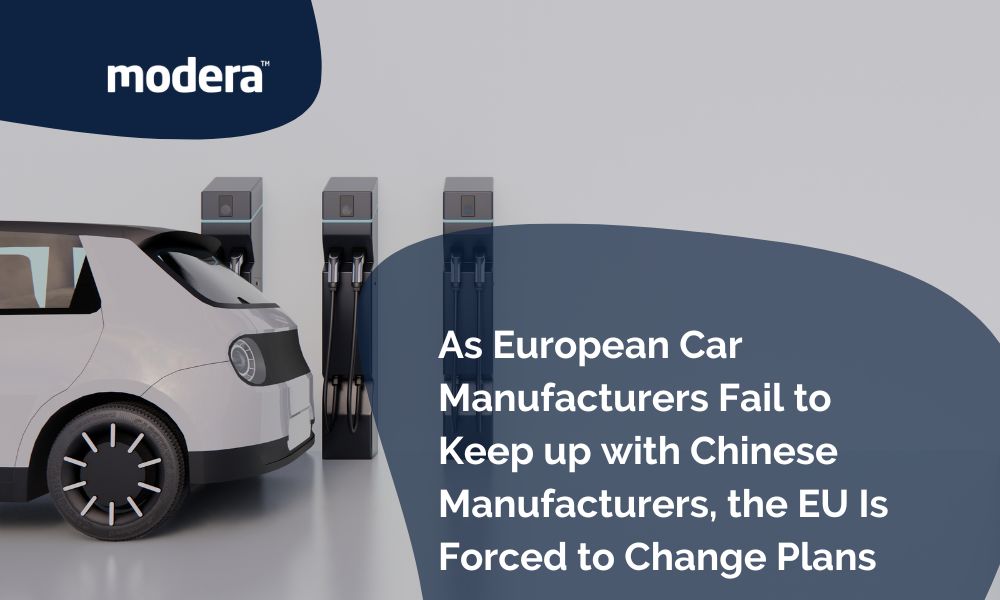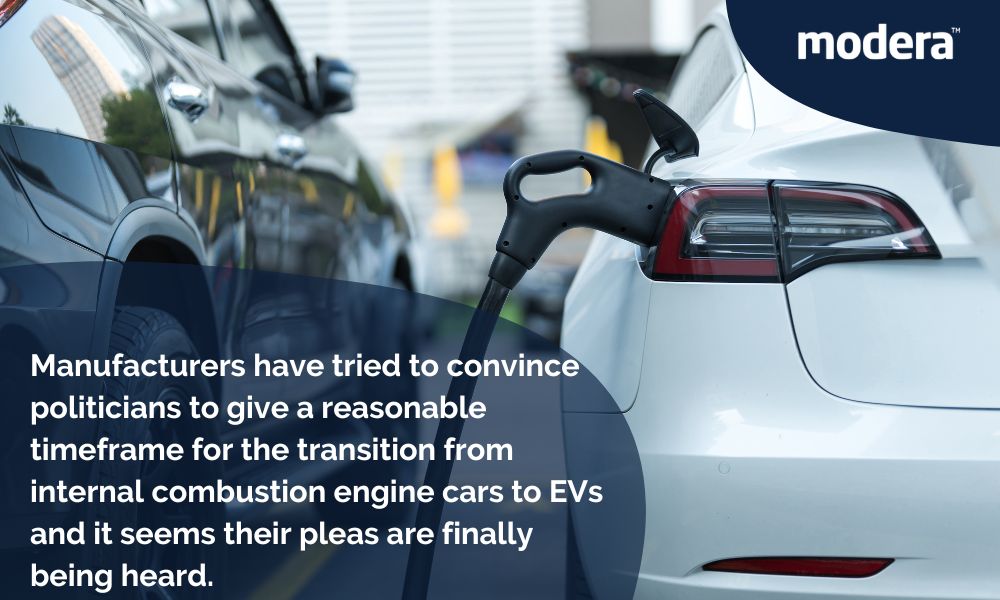
It has been doubted that reaching the goal of zero emissions by 2035 in the transport sector is feasible. Modera’s CEO Raido Toonekurg weighed in on the matter, stating that the worry of the politicians is based on European car manufacturers’ inability to keep up with the Chinese manufacturers.
The European Union has set an objective to ban the registration of new cars with internal combustion engines by 2035. As much as it’s an ambitious plan, it seems doable. The only question is — at what price?
The current state of the car market shows that Tesla along with various Chinese car brands has become a force to be reckoned with. Within the last few years, Chinese car manufacturers have shown a strong growth outside of their home market, which has gotten both European car manufacturers and state leaders on their tip toes. Their fear is justified, as Chinese manufacturers are ahead of Europe both technologically and in terms of pricing. Their cheaper price is a result of a cheaper production environment as compared to Europe.
Car market statistics reflect consumers’ preferences and it’s clear that electric vehicles are here to stay. Last year, 14.6% of all new cars registered in the European Union were electric. This was a huge milestone for electric vehicles, as they finally surpassed diesel cars, which made up 13.6% of registrations. The trend also shows that people who have gone the electric vehicle route, are not coming back to cars with internal combustion engines.
Consumers can’t keep up with EU’s expected pace
Unfortunately, the purchasing pace is still not as fast as the EU had hoped. This is also clear from Germany’s expected decrease in the interest for EVs. Thus far, Europe’s biggest car market has been a brilliant example of welcoming electric vehicles, however, it is predicted that this year, for the first time, there will be a 14% drop in EV sales compared to last year. Inflation, high car prices and insufficient charging infrastructure are to be blamed for the expected decrease.

For a long time, car manufacturers have tried to convince politicians that it is imperative to give a reasonable timeframe for the transition from internal combustion engine cars to EVs and it seems their pleas are finally being heard. The automotive industry is directly linked to the economy of Europe’s leading countries. This means that if production decreases then taxes resulting from car production as well as labor taxes will decrease drastically. Current statistics show that consumers are also not running to get electric vehicles, despite the looming ban. This step will only be taken once consumers have truly sold themselves on the idea. There’s no denying that the regulation to ban the registration of new internal combustion engine cars by 2035 has helped a lot in explaining the opportunities and concerns regarding EVs to the public. What is more, it’s made people seriously consider buying an EV and forced car manufacturers to rethink their approach. At the same time, it is obvious that the public’s interest and the abilities of car manufacturers are not aligned with the expectations of the politicians. This means that the EU must introduce a level of flexibility to their plans and not turn the idea of banning internal combustion engine cars by 2035 into an obsession.
